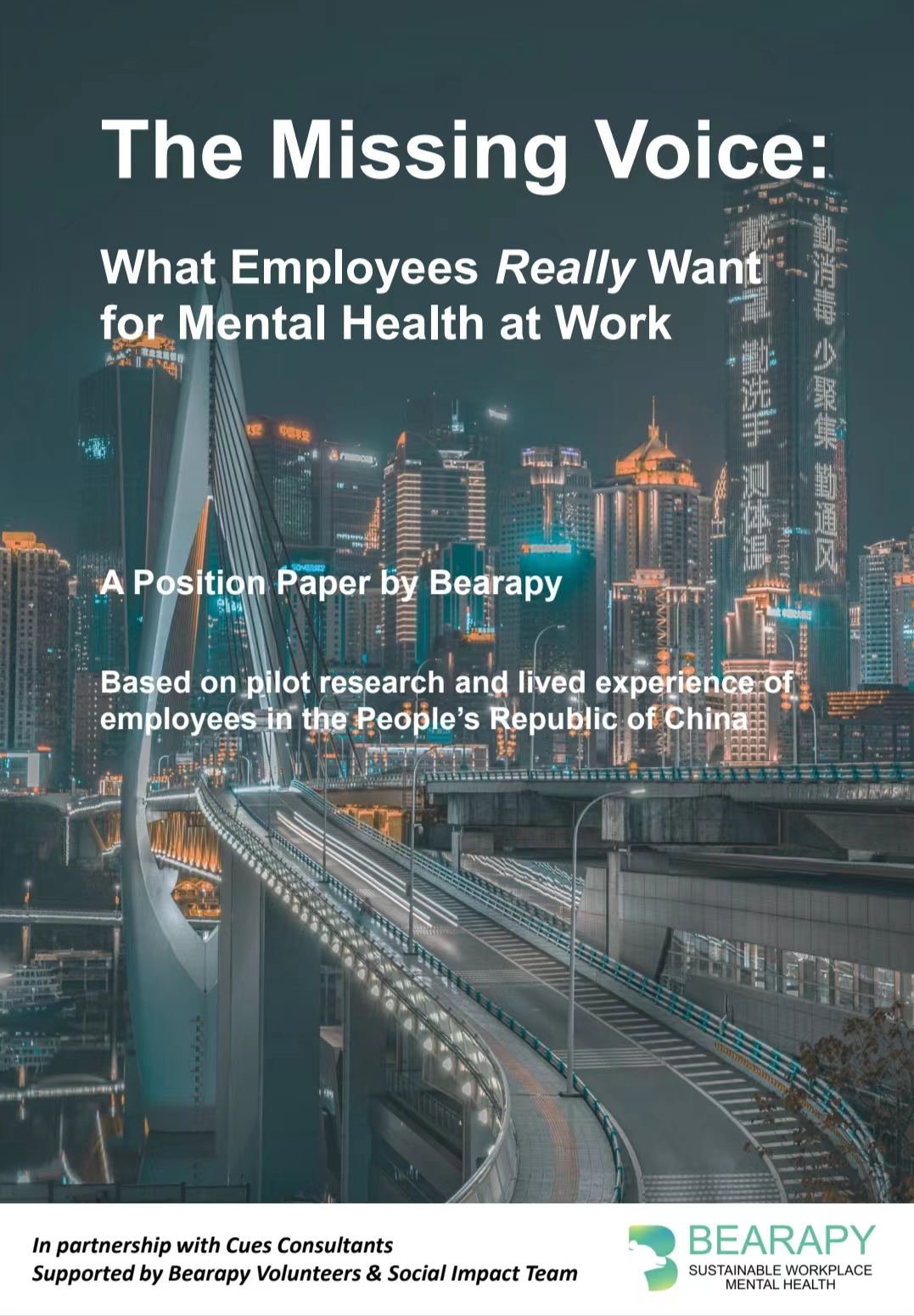Studies tell us that organizations that neglect the mental health of their employees tend to have lower ROI, higher staff turnover, and lower talent retention. We also know that Covid had a negative impact on people’s mental health but it has also helped raise awareness on the importance of the topic, including at work. Nowadays, employees expect more from their employers.
So, we have asked employees working in China:
What do you really want from your employer when it comes to workplace mental health?
We have summarized our findings in this Position Paper to help employers foster mentally healthy workplaces, forge motivated teams, and drive sustainable businesses.
What do employees in China really want when it comes to workplace mental health?
An essential yet long-neglected question, we present our findings from the quantitative and qualitative research conducted with over 150 Chinese and foreign staff living and working in the People’s Republic of China in 2021-2022. Among others, we asked them:
1. What does mental health and mental wellbeing at work mean to them?
2. What do they expect their employers to do for their mental health?
3. What would they like to change in their organizations when it comes to mental health?
4. What are they happy or dissatisfied about?
We discovered that:
• 62.5% of our interviewees have manifested symptoms of mental ill-health in the past, but only 1/5 sought help
• Employees are afraid of speaking up because they fear discrimination and repercussions that could endanger their relationships, work, or even career
• Younger generations are more disappointed with their employers
• Employees do expect their organizations to act and care for their mental health
So, what can employers do?
In this Position Paper, we outline ten critical Changes that organizations should consider to nurture motivated teams, forge mentally healthy workplaces, and create successful businesses, including:
1. Normalizing conversations around mental health to dispel the stigma surrounding mental health
2. Customizing education for better impact on diverse, multicultural teams with different expectations
3. Educating leaders to understand their duty of care and create a better, empathetic leadership
4. Promoting inclusion and diversity
5. Role-modeling and spearheading mental health initiatives, especially from leaders and managers
For questions or suggestions, you can contact us at [email protected]
We would like to thank the Bearapy volunteer team as well as (former) Cues Consultants for their crucial support that made this Position Paper possible.

